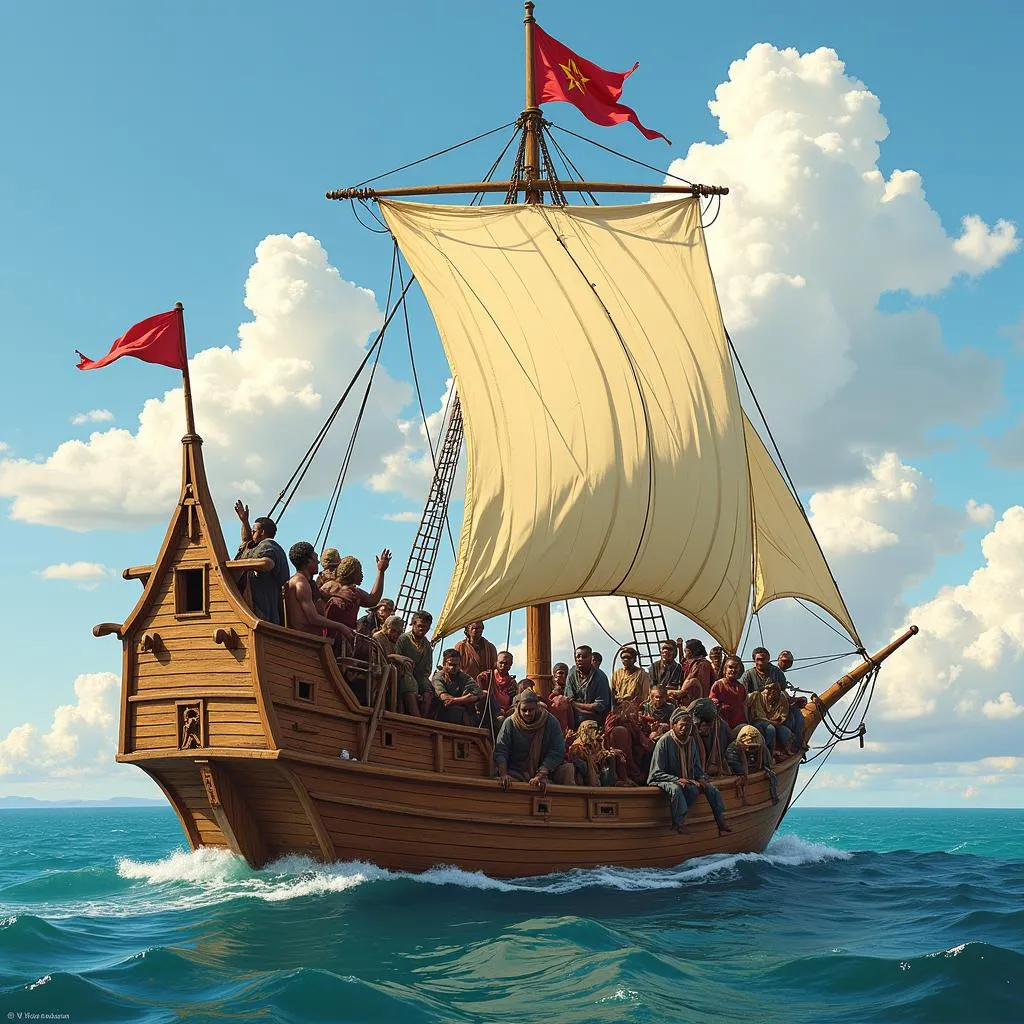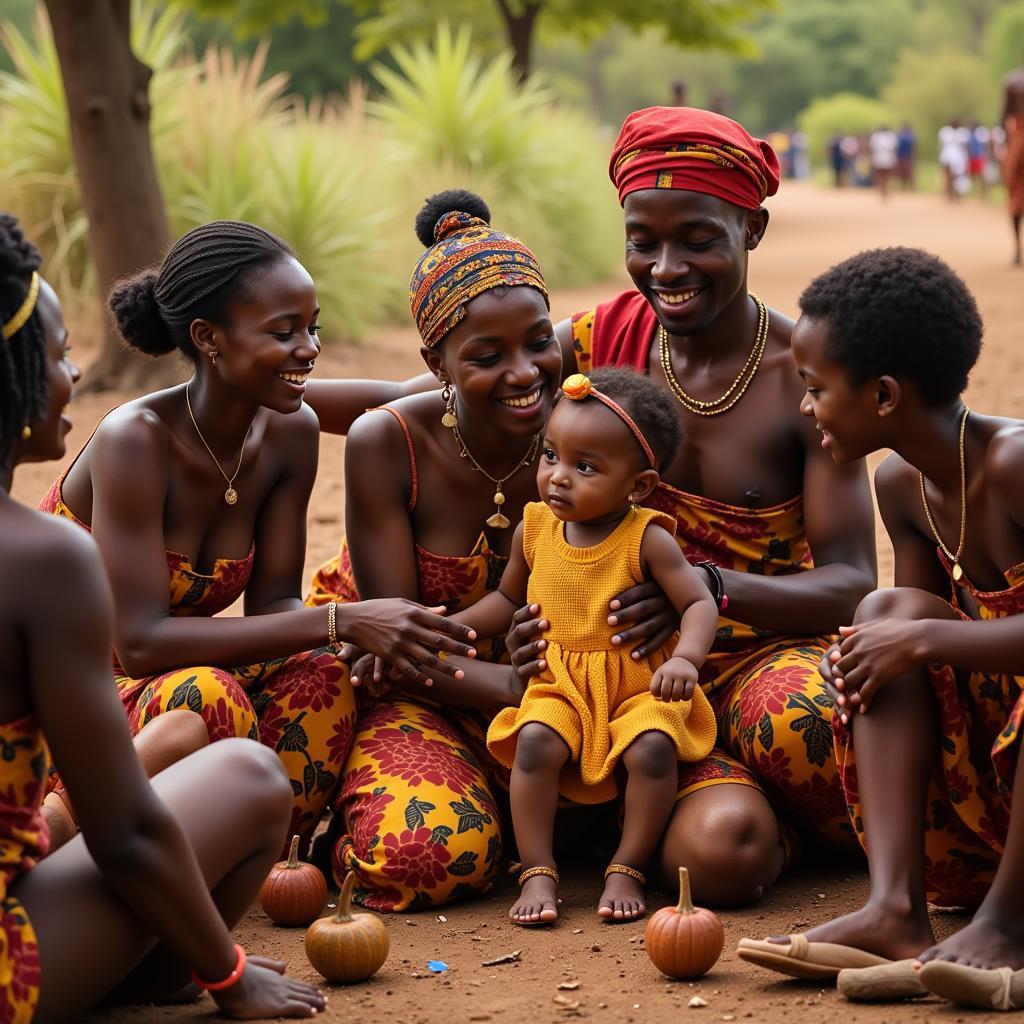Understanding African Groupings: A Comprehensive Overview
African Groupings represent a complex and evolving landscape of political, economic, and cultural alliances across the continent. These organizations play a crucial role in shaping Africa’s future, fostering cooperation, and addressing shared challenges. From regional economic communities to continental unions, understanding these diverse entities is essential to grasping the dynamics of modern Africa. This article delves into the various types of African groupings, their historical context, and their impact on the continent.
The diverse forms of African groupings reflect the continent’s rich history and the ongoing pursuit of unity and cooperation. These organizations, ranging from economic communities to political alliances, address a wide array of issues, from trade and development to peace and security. Understanding their structures, objectives, and challenges is crucial for anyone seeking to understand the complexities of the African political and economic landscape. For instance, the Economic Community of West African States (ECOWAS) plays a significant role in regional integration. You can learn more about this specific grouping on our page about African groupings ECOWAS.
Regional Economic Communities: Driving Economic Integration
Regional Economic Communities (RECs) are a cornerstone of African integration. These organizations aim to foster economic cooperation and development among member states by promoting free trade, harmonizing regulations, and facilitating cross-border investment. Some prominent RECs include the Southern African Development Community (SADC), the East African Community (EAC), and the Common Market for Eastern and Southern Africa (COMESA). These organizations represent a vital step towards greater economic integration, enabling countries to leverage their collective strengths and address shared challenges. They also work towards streamlining trade policies, improving infrastructure, and creating a more conducive environment for business.
The African Union: A Continental Vision
The African Union (AU), established in 2002 as the successor to the Organization of African Unity (OAU), represents a pan-African vision of unity and cooperation. The AU’s mandate is broad, encompassing peace and security, economic development, political governance, and social progress. It aims to promote democratic principles, good governance, and human rights across the continent. The AU also plays a crucial role in conflict resolution and peacekeeping operations.
“The AU’s role in mediating disputes and fostering peace is paramount to the continent’s stability,” states Dr. Abimbola Adebayo, a prominent scholar of African politics at the University of Lagos. “Its interventions have helped prevent and resolve numerous conflicts, promoting a more peaceful and secure environment for development.”
Other Forms of African Groupings
Beyond the RECs and the AU, numerous other African groupings exist, each with its specific focus and objectives. These include linguistic groupings, such as the Francophonie and Lusophonie, which promote cultural and linguistic ties among French and Portuguese-speaking nations, respectively. There are also political alliances and specialized organizations focused on specific sectors, such as the African Petroleum Producers’ Association (APPA). The African map also evolved over time with the formation and changes in these groupings, and you can find more details on an earlier map by searching African countries map 2019.
Challenges and Opportunities for African Groupings
While African groupings offer significant potential for progress, they also face various challenges. These include issues related to funding, capacity building, political will, and overlapping memberships. Overcoming these challenges requires sustained commitment from member states and effective leadership within these organizations. Despite the difficulties, the potential benefits of increased cooperation and integration remain significant. For example, the African Alliance Partnership demonstrates the continent’s commitment to collaborative growth.
“Strengthening regional integration and fostering greater collaboration among African countries is crucial for achieving sustainable development,” explains Professor Chike Obi, an economist specializing in African trade at the University of Nairobi. “These groupings have the potential to unlock significant economic opportunities and improve the lives of millions of Africans.”
Conclusion: The Future of African Groupings
African groupings are essential instruments for promoting peace, security, and development across the continent. They represent a collective effort to address shared challenges and build a more prosperous future for all Africans. Despite the obstacles they face, these organizations hold immense potential for driving positive change and transforming the continent. As these groupings continue to evolve, their role in shaping the future of Africa will become increasingly important. Understanding these diverse alliances is key to comprehending the complex dynamics of the continent and its journey towards greater unity and prosperity. You might also be interested in exploring African Abstract Wall Art which reflects the continent’s vibrant culture and history.
FAQ
- What is the African Union?
- What are the main objectives of regional economic communities in Africa?
- How do African groupings contribute to peace and security?
- What are some of the challenges facing African groupings?
- What is the role of the African Union in conflict resolution?
- How can African groupings promote economic development?
- What are some examples of successful regional integration initiatives in Africa?
Related questions:
- How do African groupings impact international relations?
- What is the future of pan-Africanism?
- How can African countries strengthen their cooperation in areas like health and education?
Suggested further reading:
- Explore the history and significance of African American Ancestry.
Call to Action:
For further assistance, please contact us:
Phone: +255768904061
Email: kaka.mag@gmail.com
Address: Mbarali DC Mawindi, Kangaga, Tanzania.
We have a 24/7 customer service team ready to help.

